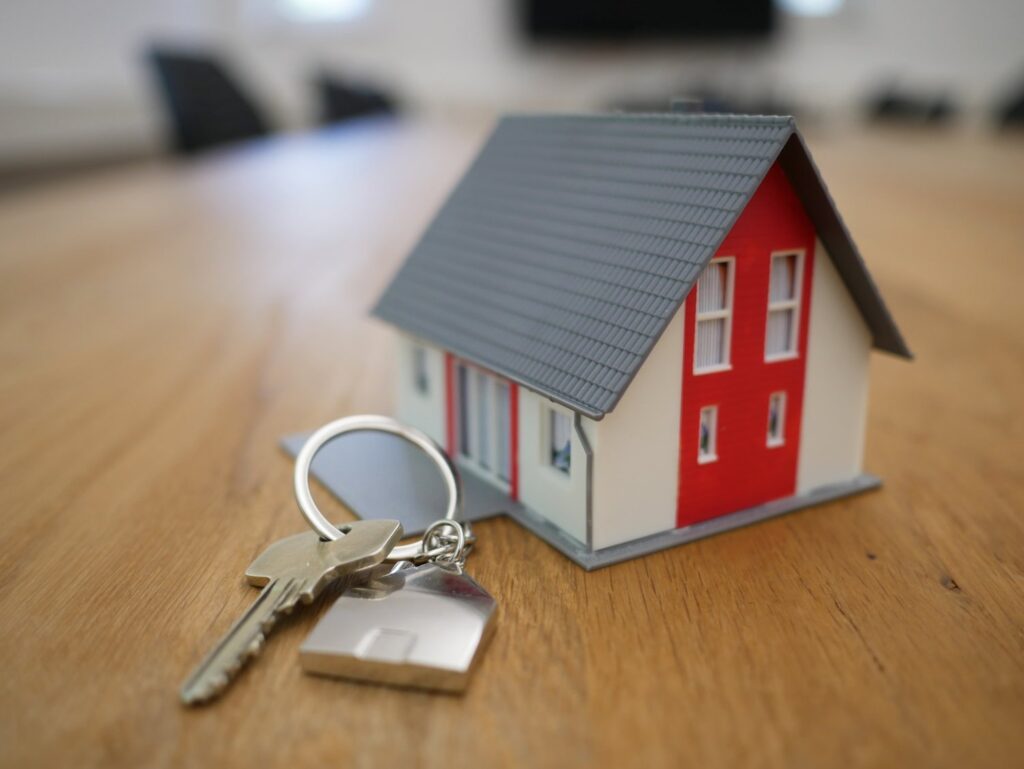If you want to buy a home in Ontario, you’ll need a down payment. This lump sum is paid upfront and can’t be put on credit. But the bigger your down payment is, the smaller your mortgage will be. For many people, it’s a substantial amount of money, so how can you save for a down payment on a home?
How much do I need for a down payment on a home?
Perhaps your first question should be, “How much do I need to save for a down payment on a home?” It’s easier to save when you have a target and can measure your progress.
The amount of your down payment will depend on the total purchase price of the home. So, how much should you spend on a house? The answer to that depends on many factors, including your lifestyle, the size of your family, your income, and the size and features you’re looking for in a home.
Financial experts recommend you spend no more than 25% of your net income on monthly mortgage payments.
Typically, a mortgage for a home in Ontario requires a percentage of the purchase price of the home based on the following amounts:
-
If the purchase price of the home is under $500,000, you’ll need a minimum 5% down payment
-
If the purchase price of the home is $500,000-$1,000,000, you’ll need a minimum 5% down payment on the first $500,000 and 10% on the remaining amount
-
If the purchase price of the home is over $1,000,000, you’ll need a minimum 20% down payment
Remember that a higher down payment means a lower mortgage, so aim to save as much as you can for your down payment.
7 Tips for Saving for a Down Payment
Do you have a target amount? If so, let’s look at several ways to save for your down payment.
1. Determine your priorities
Saving such a large amount of money isn’t easy. It requires dedication and sacrifice. If it’s a top priority for you, there might be other things that will have to slide down your priority list. Prioritize your needs before your wants.
2. Create a budget
Calculate your monthly income. Then go over your monthly expenses and calculate what you’re spending your money on. Categorize your expenses and create a budget that allows you to save money for your down payment each month.
3. Reduce expenses
Sticking to your budget may require you to reduce some of your expenses. Where could you spend less? Here are a few money-saving ideas:
-
Eat out less
-
Choose less expensive hobbies
-
Shop at consignment stores for clothing instead of buying new
-
Consider moving to a smaller place to lower your current rent payment
-
Exercise at home instead of paying for a gym membership
-
Switch to generic brands for groceries
-
Cancel entertainment subscriptions and make use of your local library instead
-
Enjoy a staycation instead of your usual pricier vacation
When the sacrifices are hard to swallow, remember how much more you’re able to save each month for your down payment. Keep track of the actual dollar amounts for motivation.
4. Pay off debt
The top three expenses that prevent people from saving for a down payment on a home are all debt-related:
-
Student loan
-
Credit card debt
-
Car loan
The interest you pay on your debts is an expense, and you obviously want to reduce that expense as much as possible. Ideally, eliminate it completely by paying off your debt in full. This also improves your credit score, which will be a profitable advantage when it’s time to get your mortgage.
5. Boost your income
Multiply your saving efforts by increasing your income. The possibilities are endless here. Some ideas include:
-
Sell stuff. Downsize and minimize your belongings by selling whatever you don’t need. Host a yard sale and sell online.
-
Ask for a raise. If you think the timing might be appropriate, consider having a salary discussion with your boss. Come prepared to show your value to the company with quantifiable performance or progress reports.
-
Switch jobs. Maybe it’s time to get a different job that pays better.
-
Start a side hustle. The gig economy is alive and well. If you like driving, become a driver for a ridesharing company. If you’re creative, do some freelance work. Try dog walking, pet sitting, or tutoring.
-
Rent out space or stuff. If you have an extra bedroom, rent it out. Or rent out a parking space or your RV or camping gear. Get creative with this idea. There are plenty of items most people need only once in a blue moon. They’d be happy to rent instead of fork out the cash to buy it for one use.
The trick with boosting your income is to actually put this extra money into your down payment savings. It’s not “fun money” or a license to increase your monthly expense budget.
6. Make saving automatic
There are several ways to make saving automatic. Set up an automatic transfer from your chequing account to your savings every payday. Some banks allow you to set up automatic savings by “rounding up” your purchases. So if you spend $4.50 on an item, it will automatically round up your purchase to $5.00 by putting the extra $0.50 into your savings account.
7. Ask for help
Crowdsourcing is becoming more common for people saving for down payments and other large ticket items. If you’re not comfortable outright asking for donations from others, consider requesting gift cards or cash for gifts instead of physical items. If you get a gift card for a clothing store, consider it the money you’ve allotted for that category in your budget, and transfer the cash amount to your savings.
Make a Down Payment on a Home in the Burlington Area
Saving for a down payment doesn’t sound too bad, does it? Canadians do it every day, and you can, too! Use these tips to make a plan, then stick to it.
Are you ready to make a down payment on a home in the Burlington area? The Vickie Cooper Realty Group is ready for you! Let us help you find the perfect home for you!

